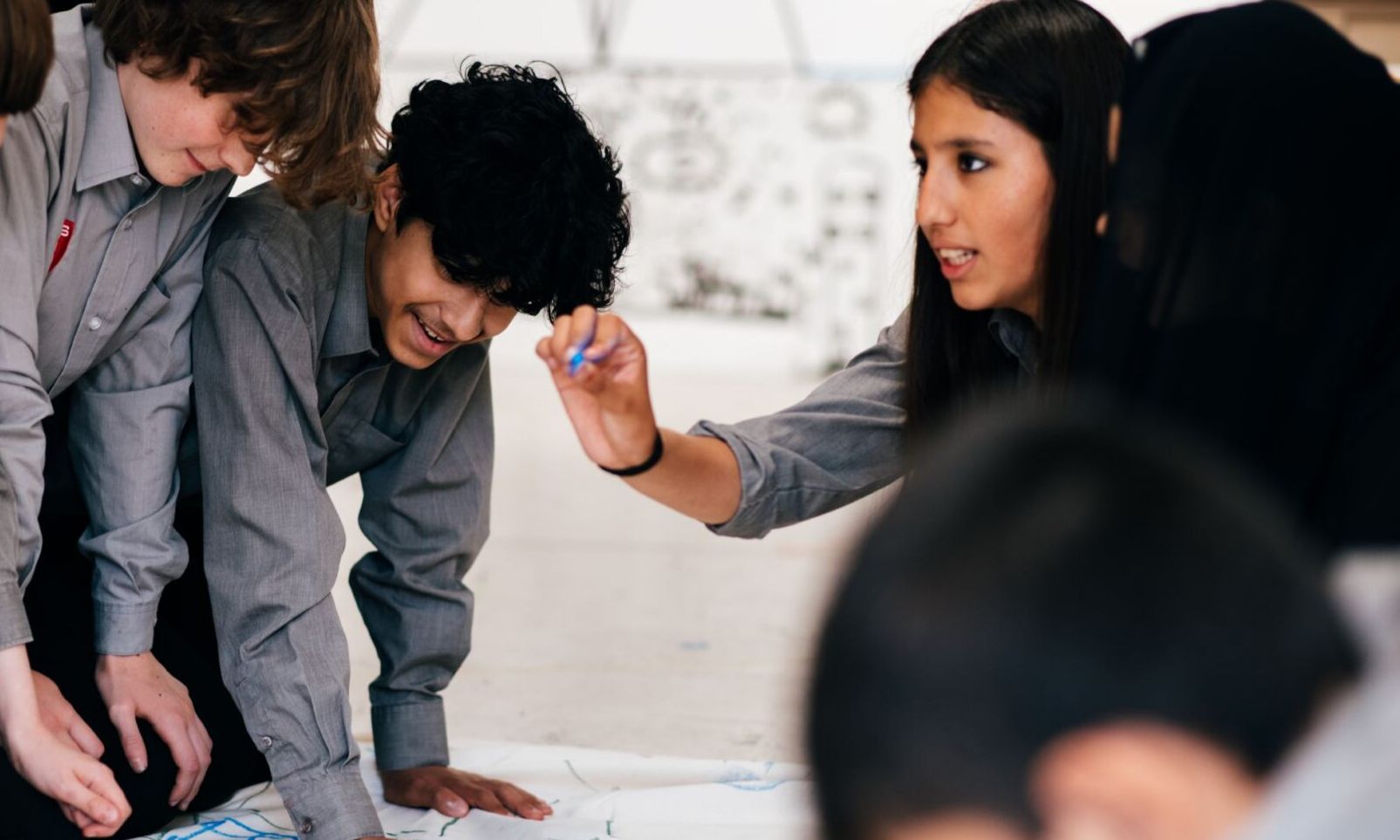In the UK, we have recently enjoyed a wealth of long-overdue solo and group exhibitions celebrating the rich and varied practices of minority ethnic artists at the heart of our shared visual culture. However, our research with Runnymede Trust exposed that the picture of this visual culture presented in schools looks like a different universe. Only 2.3% of artists named in GCSE art papers over the last five years were Black or Asian, and some exams did not reference a single non-white artist. Over three years, we spoke to teachers, students and artists across England to understand what and how young people are taught in art lessons, and why this narrow curriculum is so disconnected from the ideas and practices flourishing in the sector.
Beyond the stark absences in GCSE papers, we met art teachers preparing students for these exams whilst themselves desperately lacking in confidence and support. Only four out of ten surveyed felt sure of the correct language to use when discussing minority ethnic artists and their work, and a third had never encountered the practices of any minority ethnic artists in their own education and training. Suffocated and beleaguered by years of underfunding, mismanagement, devaluing of their subject and risk-averse cultures, art teachers are leaving the profession in record numbers. Those who remain discussed with us the struggle to realise the broad, inspiring curriculum to which they aspired.
Equally, our research uncovered the bleak reality of a generation of young people educated to see visual art as an archaic luxury with no currency in the real world. Only 6% of students surveyed felt they could relate to artists introduced in the classroom, and less than 10% that art helped them understand their own lives. This preconception extended beyond students to families unable to see a value to studying Art & Design, with Black and Asian students in particular facing parental pressure to ‘focus on other subjects’ at four times the rate of their white peers. Against this desolate landscape, the voices of contemporary artists reflecting on the impact of their own art education illuminated the transformative potential of the subject, and how far current experiences are falling short. In the "artist's voices" section of the report, alongside Simeon Barclay, Rana Begum, Chila Burman, Hardeep Pandhal, Rene Matic and Keith Piper, Harold Offeh spoke of a state school art education that “was relevant and vital, equipping me with tools to reflect on my place in the world, communicate and contribute to it. I was empowered to make, think, play and do.”
The message from both students and teachers was clear: today’s art education is unfit for purpose. Everyone suffers the consequence of a woefully narrow and uninspiring curriculum, and minority ethnic students experience an intersectional impact of these failings. 66% of students across all ethnicities (80% of Black students) asked for more diverse artists in their lessons, and 90% of teachers would welcome additional support to deliver this. We as a cultural sector have a responsibility to act now to support them in this change.
Runnymede Trust has set out clear practical recommendations toward enacting this much-needed shift in art education. Some, such as redressing the diversity of exams, are already underway, with two providers (Pearsons and Eduqas) having committed to a target of at least 25% minority ethnic artists in all papers from 2025. Some will be less immediate, working toward structural change in how art education is taught, and its value understood across society; but they are nonetheless urgent and, I believe, achievable. The art sector has a vital role also, in connecting teachers and schools with the full breadth of practices and ideas through meaningful, innovative programmes that go beyond formulaic museum visits. Freelands Foundation hopes to work with partners across the field to move this change forward: artists come from, and represent, an increasingly diverse society and we must all play our part to ensure that art education reflects this.
• Henry Ward is the director of Freelands Foundation

